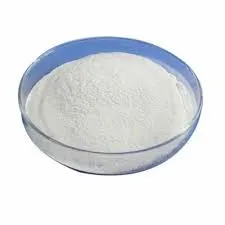
Дек . 04, 2024 15:29 Back to list
Exploring the Applications and Benefits of Hydroxyethyl Cellulose in Modern Industries
Hydroxyethyl Cellulose An Overview
Hydroxyethyl cellulose (HEC) is a non-ionic, water-soluble polymer derived from natural cellulose. It is widely recognized for its various applications in different fields due to its unique properties such as thickening, gelling, and stabilizing. This article aims to delve into the characteristics, applications, and benefits of HEC, highlighting its significance in both industrial and consumer products.
Chemical Structure and Properties
HEC is synthesized through the alkali treatment of cellulose followed by ethylene oxide reaction, resulting in hydroxyethyl groups being added to the cellulose chain. This modification enhances its solubility and performance in aqueous solutions. HEC appears as a white, odorless powder that can absorb water and swell to form a viscous solution. Its viscosity is affected by several factors, including concentration, temperature, and the degree of substitution of hydroxyethyl groups on the cellulose backbone.
One of the key features of HEC is its non-ionic nature, which means it does not carry any electric charge. This characteristic makes it compatible with a wide range of materials, allowing it to be successfully utilized in formulations that contain both ionic and non-ionic compounds. HEC exhibits excellent film-forming properties and has the ability to improve the texture and feel of various products, making it a popular ingredient in many formulations.
Hydroxyethyl Cellulose An Overview
HEC finds diverse applications across multiple industries, including pharmaceuticals, cosmetics, food, and construction.
hec hydroxyethyl cellulose

1. Pharmaceuticals In the pharmaceutical field, HEC is employed as a binder and thickening agent in tablet formulations. It allows for better drug release and improves the consistency of the formulations. Furthermore, HEC is used in ophthalmic solutions and gels for its ability to enhance viscosity, thereby prolonging residence time on mucous membranes and improving bioavailability.
2. Cosmetics and Personal Care HEC is extensively used in the cosmetic industry due to its thickening properties and excellent ability to stabilize emulsions. It is a common ingredient in skincare products, shampoos, and conditioners, where it helps to improve consistency, reduce protein loss during washing, and create a luxurious feel. Its non-irritating nature makes it suitable for sensitive skin formulations.
3. Food Industry In food applications, HEC acts as a thickener, stabilizer, and emulsifier. It is used in sauces, dressings, and dairy products to improve texture and prevent separation. Its low-calorie content makes it an appealing choice for low-fat formulations, where it can give a desirable mouthfeel without adding additional calories.
4. Construction HEC is also utilized in the construction industry, particularly in products such as mortars and plasters. It enhances workability and open time, allowing for better application and adhesion of materials. The water retention properties of HEC help to prevent cracking and improve the durability of construction materials.
Benefits
The benefits of using HEC are manifold. Its ability to provide a smooth, consistent texture improves product quality, whether in cosmetics or food. Its compatibility with a wide range of ingredients widens its applicability across formulations. Furthermore, HEC is derived from renewable resources, aligning with the growing consumer demand for sustainable and environmentally friendly products.
In conclusion, hydroxyethyl cellulose is a versatile and valuable polymer with widespread applications in various industries. Its unique properties not only enhance the performance of products but also contribute to consumer satisfaction. As industries continue to seek innovative and sustainable solutions, HEC is expected to play an even more significant role in the development of new products, reinforcing its importance in modern formulation technologies.
-
tile-bonding-additives-for-stronger-bonds
NewsAug.22,2025
-
construction-grade-rdp-for-wholesale-needs
NewsAug.22,2025
-
trusted-wholesale-hec-partners
NewsAug.22,2025
-
hec-solutions-for-industrial-excellence
NewsAug.22,2025
-
construction-additives-need-hpmc-essentials
NewsAug.22,2025
-
hpmc-versatile-cellulose-ether-for-industries
NewsAug.22,2025







